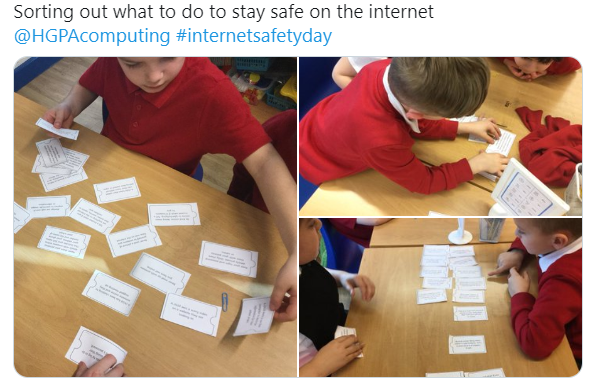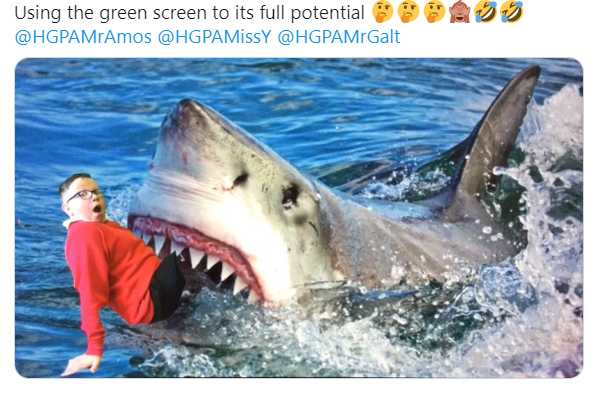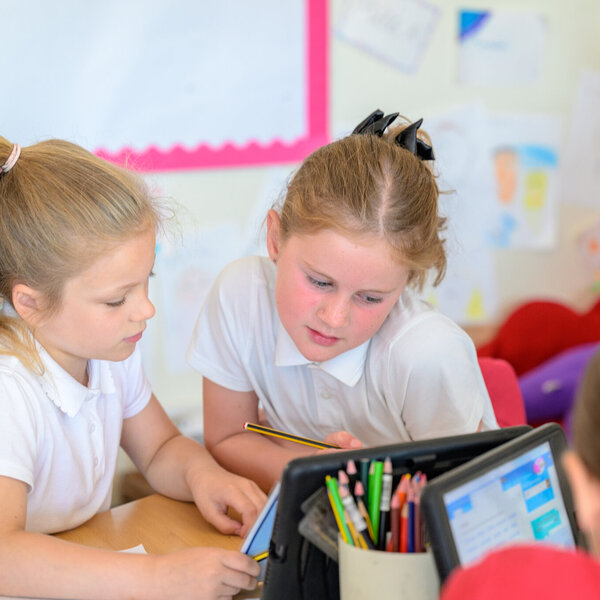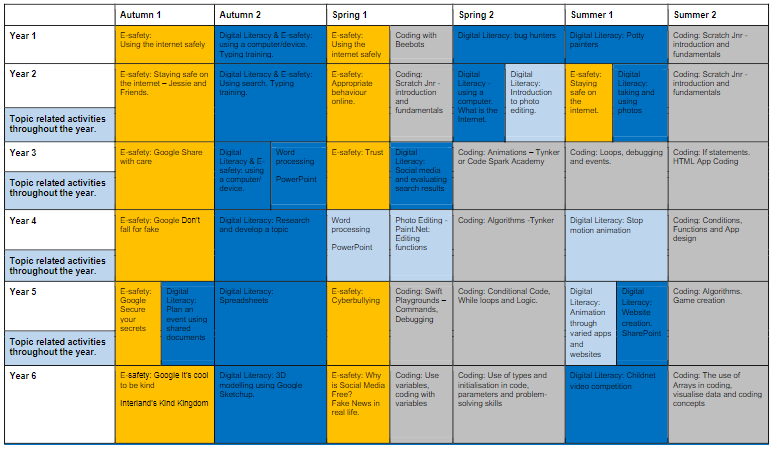Computing at Harrow Gate Academy
At Harrow Gate Academy, we believe that it is vital for all pupils to learn from and about Computing and Technology, so that they are able to understand the world around them. Through teaching our computing curriculum, we aim to equip our children to participate in a rapidly changing world where work and leisure activities are increasingly transformed by technology. It is our intention to enable children to find, explore, analyse, exchange and present information as well as having the skills to manipulate, develop and interpret different forms of technology in an ever-changing world.

The core of computing is computer science, in which pupils are taught the principles of information and computation, how digital systems work, and how to put this knowledge to use through programming. Building on this knowledge and understanding, pupils are equipped to use information technology to create programs, systems and a range of content. Computing also ensures that pupils become digitally literate –able to use, and express themselves and develop their ideas through, information and communication technology –at a level suitable for the future workplace and as active participants in a digital world.


Our Aims
The curriculum for computing aims to ensure that all pupils:
•can understand and apply the fundamental principles and concepts of computer science, including abstraction, logic, algorithms and data representation
•can analyse problems in computational terms, and have repeated practical experience of writing computer programs in order to solve such problems
•can evaluate and apply information technology, including new or unfamiliar technologies, analytically to solve problems
•are responsible, competent, confident and creative users of information and communication technology.
Key Vocabulary
Algorithms
An algorithm is a sequence of instructions, or a set of rules, for performing a task.
Coding
Coding is putting information and commands into a program, making it possible for you to create software, apps and websites.
Program
A set of algorithms or processes that are completed in order to achieve a task.
Debug
Debugging is checking the code in a computer program to ensure that it works and changing it if it doesn't.
Decomposition
The process of breaking down a problem into smaller manageable parts is known as decomposition. Decomposition helps us solve complex problems and manage large projects.
Sequences
This means that the computer will run your code in order, one line at a time from the top to the bottom of your program. It will start at the first block of code, then execute the next block of code then the next and so on until it reaches the last code block of your program.
Key Stage 1
Pupils should be taught to:
•understand what algorithms are; how they are implemented as programs on digital devices; and that programs execute by following precise and unambiguous instructions
•create and debug simple programs
•use logical reasoning to predict the behaviour of simple programs
•use technology purposefully to create, organise, store, manipulate and retrieve digital content
•recognise common uses of information technology beyond school
•use technology safely and respectfully, keeping personal information private; identify where to go for help and support when they have concerns about content or contact on the internet or other online technologies.
Key Stage 2
Pupils should be taught to:
•design, write and debug programs that accomplish specific goals, including controlling or simulating physical systems; solve problems by decomposing them into smaller parts
•use sequence, selection, and repetition in programs; work with variables and various forms of input and output
•use logical reasoning to explain how some simple algorithms work and to detect and correct errors in algorithms and programs
•understand computer networks including the internet; how they can provide multiple services, such as the world wide web; and the opportunities they offer for communication and collaboration
•use search technologies effectively, appreciate how results are selected and ranked, and be discerning in evaluating digital content
•select, use and combine a variety of software (including internet services) on a range of digital devices to design and create a range of programs, systems and content that accomplish given goals, including collecting, analysing, evaluating and presenting data and information
•use technology safely, respectfully and responsibly; recognise acceptable/unacceptable behaviour; identify a range of ways to report concerns about content and contact.
Take a look at our year group curriculum overview:

.PNG)

